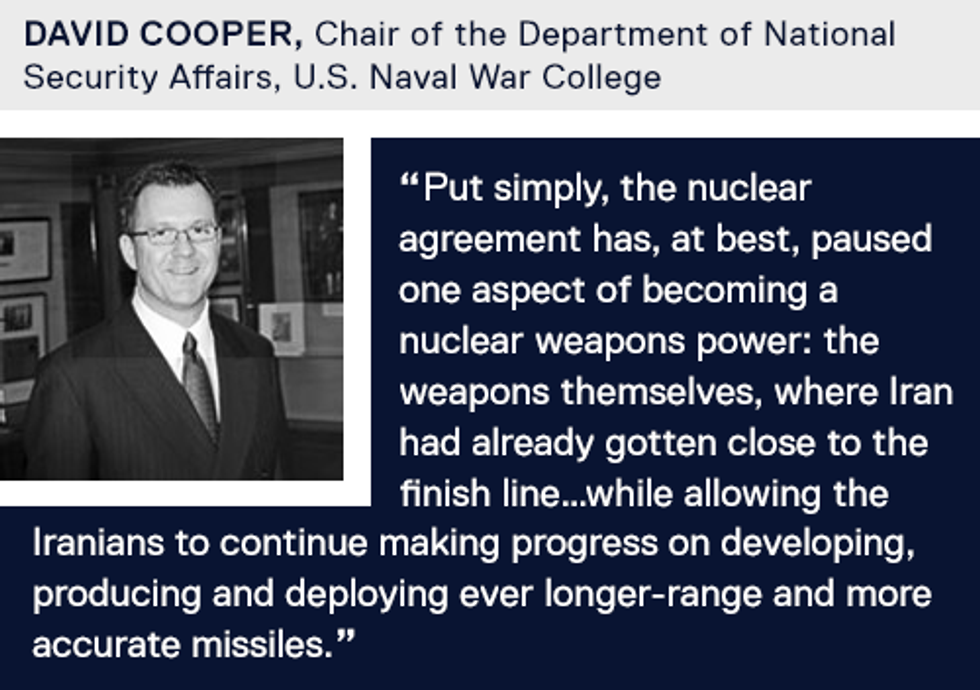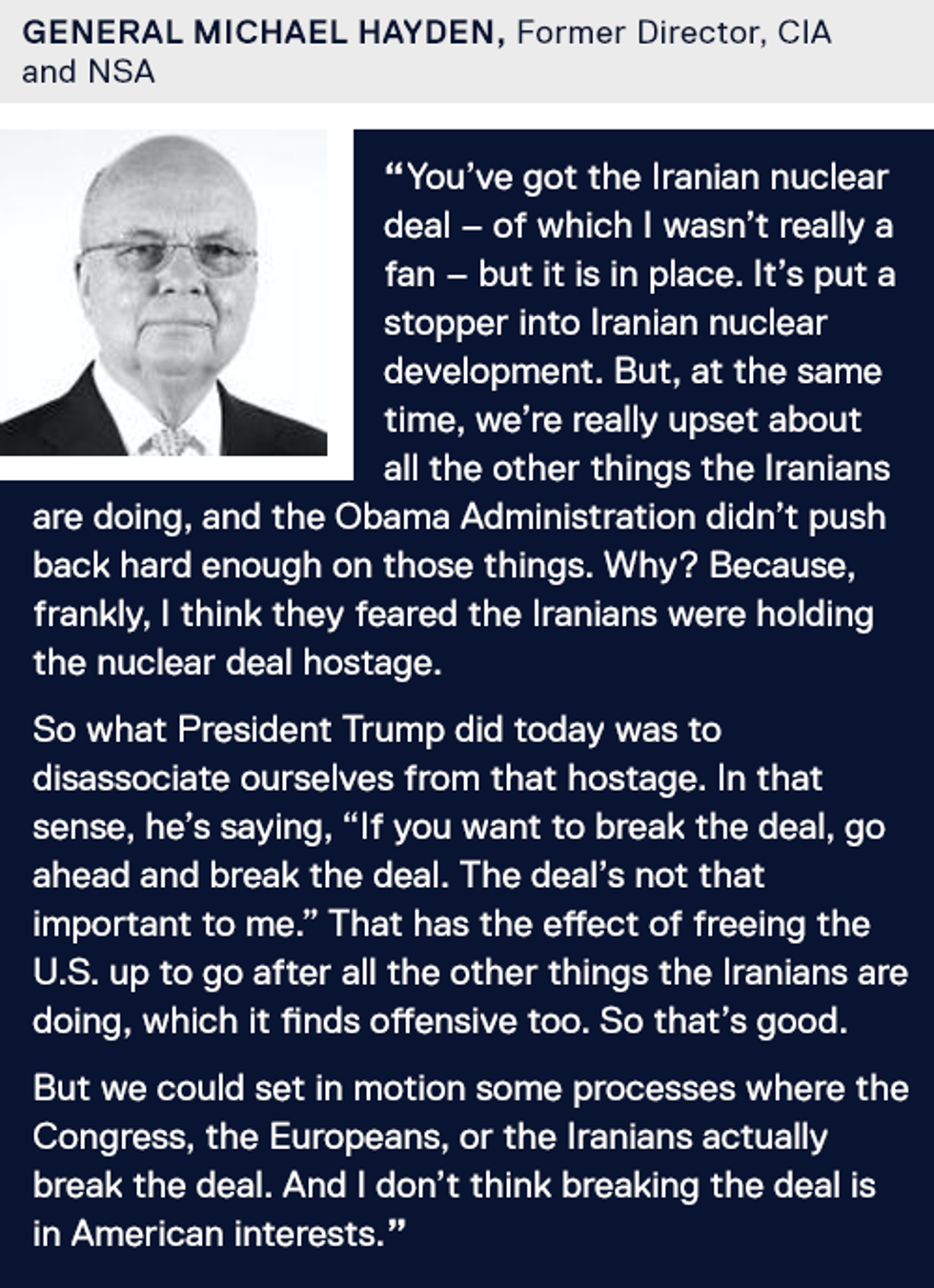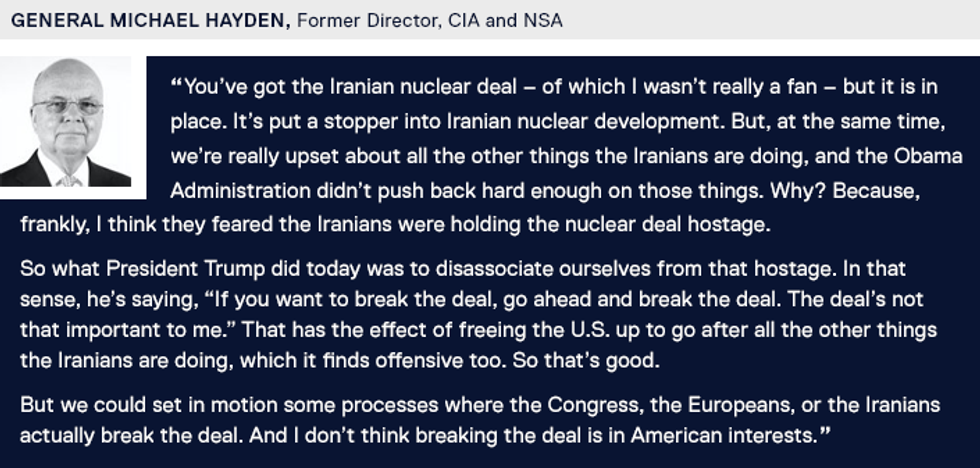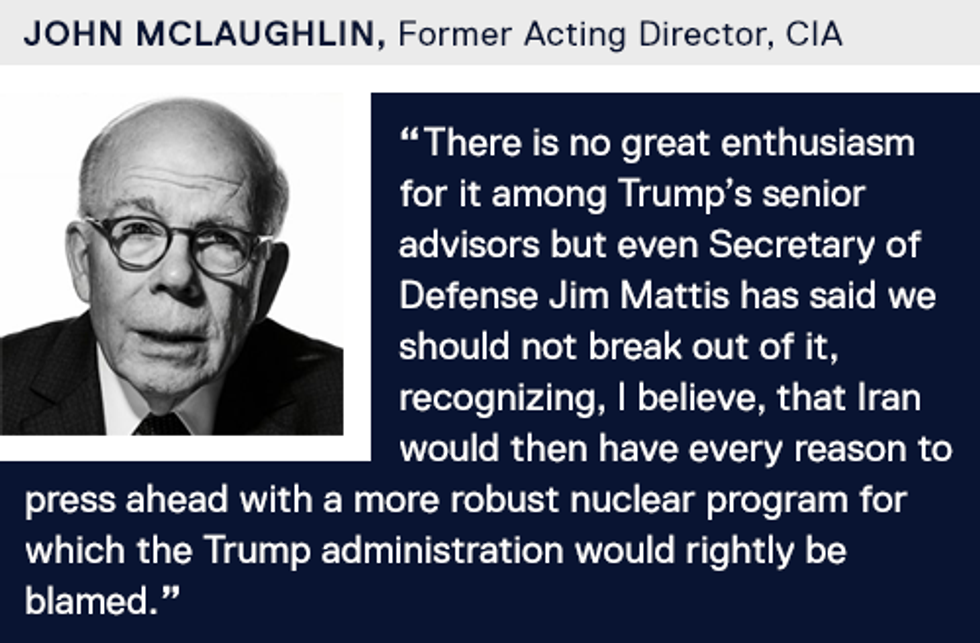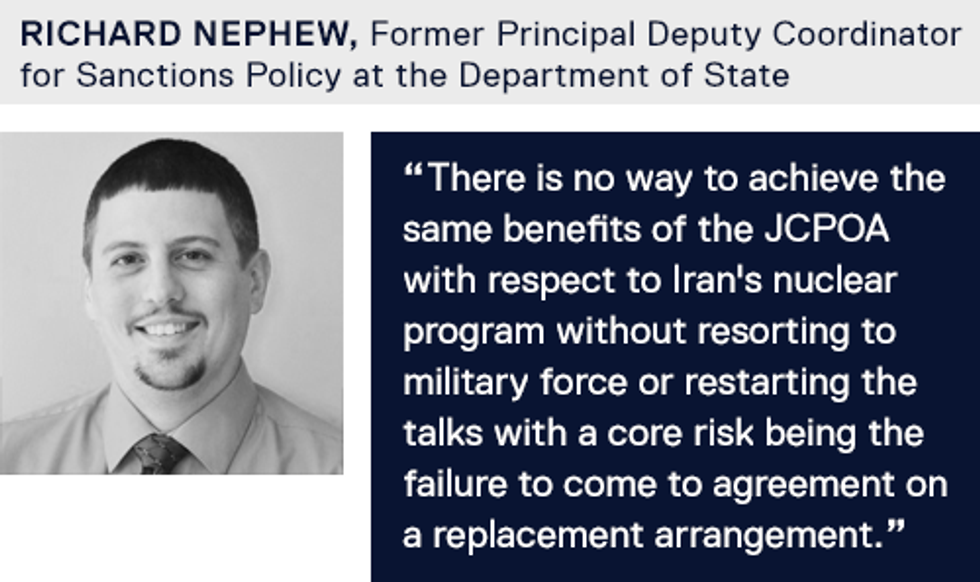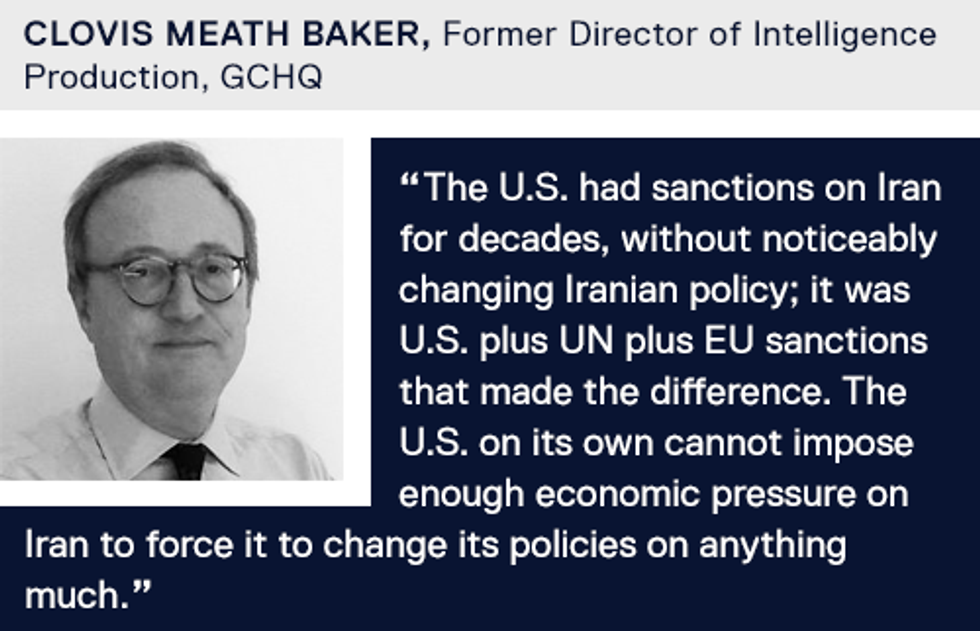The mid-December deadline for Congress to determine whether to re-impose nuclear-related sanctions on Iran is rapidly approaching – with uncertain progress. Enacting these additional sanctions on Iran would effectively mean that the U.S. is unilaterally withdrawing from the Iran nuclear deal, also known as the Joint Comprehensive Plan of Action (JCPOA).
- The JCPOA, reached between the P5 + 1 – the U.S., UK, France, Russia, China and Germany – and Iran in July 2015 and codified in UN Security Council Resolution 2231, directed Iran to reduce its nuclear program in exchange for releasing nearly $150 billion in frozen assets and the lifting of international sanctions targeting its nuclear program.
- United States President Donald Trump has made no secret of his antipathy towards the deal. On the campaign trail, Trump threatened to “rip up” the JCPOA on his first day in office, frequently calling the agreement the “worst deal ever.”
- The president, as mandated by Congress, is required to provide his stamp of approval regarding Iran’s compliance every 90 days. Despite his strong anti-JCPOA rhetoric, Trump twice - reluctantly - certified that Iran abided by its nuclear commitments.
- On October 13th, Trump announced that he would not certify Iran’s compliance for a third time. The White House emphasized that although Iran had fulfilled the “technical” aspects of the deal, it was “unquestionably in default of the spirit” of the agreement.
The deal’s critics – including the White House – object to the narrow scope of the nuclear deal and its so-called “sunset clauses.” The JCPOA focused on issues related to Tehran’s nuclear-related activities and did not address Iran’s aggressive ballistic missile program.
- As part of these clauses, restrictions on key Iranian nuclear activities will expire in 10-15 years. At that point, Iran will be able to operate an increased numbers of centrifuges, enhance its stockpile of low enriched uranium and conduct more advanced types of nuclear research and development.
- Since the JCPOA was implemented, Iran has augmented its ballistic missile capabilities and provocatively tested longer range ballistic missiles, which Tehran has claimed are solely for defensive purposes.
By refusing to certify Iran’s compliance last month, Trump sent a warning to Tehran and passed responsibility for the deal’s future to Congress. The president signaled to Tehran that the United States is not beholden to the JCPOA and will remain stalwart in its efforts to limit other Iranian bad behavior.
- Iranian President Hassan Rouhani told CNN in September that the U.S. will pay a “high cost” if Trump scraps the deal and that such a move would “yield no results for the United States, but at the same time, it will generally decrease and cut away and chip away at international trust placed in the Unites States of America.”
- In his October 13th speech, Trump said that his administration will “work closely with Congress and our allies to address the deal's many serious flaws so that the Iranian regime can never threaten the world with nuclear weapons.” If that approach does not work, Trump also said that the deal “can be canceled by me as president at any time.”
The majority of The Cipher Brief’s experts agree that despite its flaws, the JCPOA should remain in place. If the U.S. walks away from the deal, it could enable Iran to return to its pursuit of nuclear weapons and simultaneously reinforce a narrative of U.S. unreliability on the world stage.
- Iran received sanctions relief and an infusion of cash at the beginning of the deal on the promise of compliance; breaking the deal now would end the return on investment by the international community.
- Any sanctions imposed by Congress would have limited effects when compared to the comprehensive and rigorous international monitoring process currently in place.
- The United States’ partners in this deal – China, Russia, UK, France and Germany – do not share Trump’s disdain for the accord and have publicly ruled out renegotiating the accord.
Trump’s actions have signaled to Tehran that the time for games is over – but backing out of the JCPOA limits U.S. options globally. Abandoning the deal would communicate to other nations – be it North Korea, the EU or China – that deals Washington will last only as long as the president who signed them sits in the Oval Office.
Bennett Seftel is deputy director of analysis at The Cipher Brief. Follow him on Twitter @BennettSeftel.




